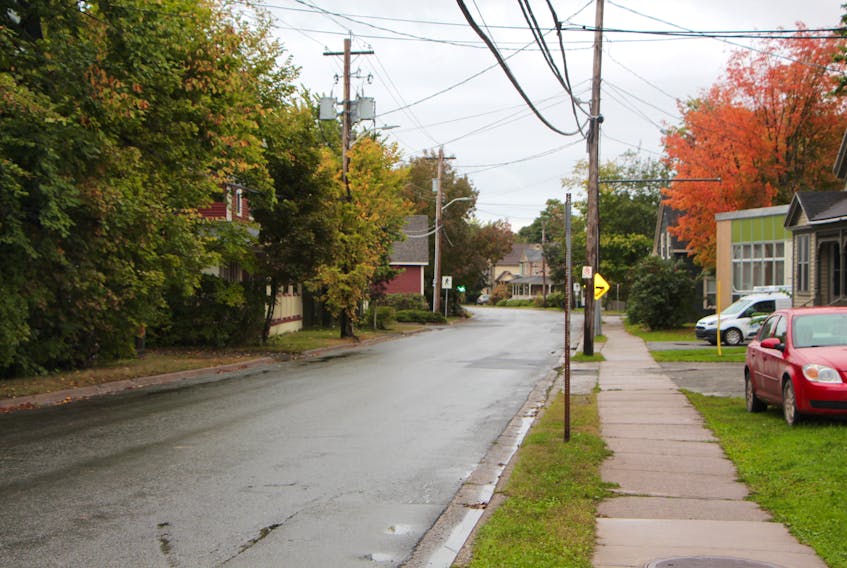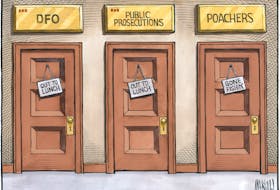ANTIGONISH, NS - Nova Scotia is a genuine postcard destination, when it comes to vacations and tourism.
According to Tourism Nova Scotia, the province has seen a year-to-date increase in out-of-province visitors of 1 per cent since last year – an exceptional year, considering it was Canada 150 in 2017 – and a six per cent increase in tourism in July 2018, compared to July 2016.
No matter how you crunch the numbers, that’s a lot of visitors from away, coming to Canada’s Ocean Playground to spend some quality vacation time.
This, of course keeps the hospitality industry busy – especially in the summer months. The many tourists coming to Nova Scotia have a lot to choose from; camping, cottages, hotels and motels, bed and breakfasts. And with those, there is a new ‘B and B’ on the block; Airbnb.
Airbnb, an Internet-based service that allows people who own property to rent it out to guests on a short-term basis, operates very similarly to a traditional bed and breakfast – except reservations are all done online, through a booking system. Anyone who owns property can avail themselves of it, turning their living space into rental accommodations.
Local perspective
Picturesque Antigonish and Antigonish County are no strangers to this trend. At the time of publication, a perfunctory search for “Antigonish” on the Airbnb website yields dozens of entries, ranging in price from $89 a night to more than $500 a night.
Airbnb offerings in the Antigonish area are diverse. What a person can rent, short-term, in the area ranges from basements and owned apartments in the downtown core, to entire cottages and houses across the Municipality of the County of Antigonish.
But with numerous short-term rental properties available, there’s the possibility of trouble in paradise. There is concern that an increase in short-term rentals is putting a squeeze on local renters who are already having trouble finding long-term accommodations.
Airbnb’s short-term rental stock is also subtly eating into the supply of long-term rentals. At a glance, some of the suites now listed as short-term rentals in Antigonish on Airbnb are units that once were rented out, long-term.
John Bain, director of the Eastern District Planning Commission, sees difficulties on the horizon, if there aren’t at least some regulations in place in the burgeoning short-term rental market Airbnb is creating.
Bain pointed to a recent decision in St. Peters to allow “in-law suites onto properties,” small homes that are usually built in the back yard of existing properties, sharing municipal services and power.
“When we made that amendment, we raised the concern that those could be used as Airbnb rentals,” Bain said. “Once you permit building, tenancy is something difficult to administer, from a land-use point of view. Can you say, as a municipality, that it has to be a month-to-month, or year-to-year or week-to-week? How do you administer that? I don’t know the answer to those questions.”
Bain noted similar issues arises in areas where there are times of the year where tourism spikes, from the communities along the Cabot Trail to Whistler, B.C.
“It definitely is an issue, in places where tourist accommodations are overtaking all the local rentals,” Bain said. “Let’s say you have someone working for the summer in Inverness. They want to spend $500 to $600 a month, which a few years ago, they could have done.
But now, Airbnb owners can say, ‘I could get $100 for a night instead of $500 a month,’ and suddenly its off the market for non-tourist renting.”
READ MORE
RESERVATIONS: Renters struggle for accommodation in Airbnb-rich communities
RESERVATIONS: Airbnb is having a huge impact on the industry – but at what cost?
RESERVATIONS: Airbnb regulations a patchwork that’s missing some patches
Rules and regulations
In Nova Scotia, Airbnb rentals are subject to the same broad set of traveler accommodation regulations that are in place for everything from campgrounds to hotels, but there are no specific laws in place for Airbnb.
Since Airbnb is unique and becoming increasingly popular, the province is looking to devise a more specific regulatory framework specifically for the service it provides.
Kelly MacDonald, a communications agent for Tourism Nova Scotia, said that Airbnb and other forms of short term rentals, “are a reality in the tourism industry.”
“We know visitors and travelers are using more short-term rental platforms to book vacations,” she said. “Many prefer Airbnb-style accommodations.”
To figure out how to deal with the emerging market Airbnb represents in Nova Scotia, MacDonald said the government is looking to form recommendations on how to integrate the service into the province’s hospitality industry.
She added, “The results of the recommendations are not released yet.”
The economic side
Fred Morley is at the helm of a working group drafting recommendations. Morley, an economist, is conducting specific research into the implications of the more independent form of hospitality that Airbnb represents.
“A lot of these platforms have been around for almost a decade, but they came on strong in Nova Scotia in the last three or four years,” Morley said. “We have been working on this for the last little while to come up with an approach that seems fair but, at the same time, retains the important capacity that short-term rentals represent.”
According to Morley, there is a rising demand for the variety, in the way of accommodations, services like Airbnb offer in a particular community.
“What appears to be the case in the accommodation sector is that consumers want a full range of products,” Morley said. “They are wanting old-style hotels, but want the new-style short-term rentals as well.”
He acknowledged that Airbnb in particular has been a disruptor to the established hospitality industry, since “these various new service platforms are changing the way consumer are buying services,” comparing the effect Airbnb is having on the hospitality industry to the effect ride share service Uber is having on public transportation.
One benefit of the burgeoning Airbnb business Morley sees is the fact that it’s open to criticism and feedback from guests.
“One of the things really in demand in short-term rental space is high quality. All of these platforms have peer reviews on them – everything is rated right now,” Morley said. “You need a high-quality rating to get any business through these platforms, and to stay on them, because they’ll kick you off if you get a lot of bad reviews.”
While regulation is on the table, Morley said it may not be the case that strict regulation is needed to integrate Airbnb properly into the industry.
“A lot of jurisdictions are not looking at strict regulation, they’re trying to understand how to regulate effectively,” Morley said. “You don’t need to control everything to protect consumers.”
Morley is optimistic about the rise of services like Airbnb, and said it shouldn’t be seen as a problem – especially not in places like Antigonish, a place that has always been plagued by a lack of long-term rental accommodations.
“As far as I know, housing has always been difficult to find in small rural university towns, whether that’s Wolfville, Sackville or Antigonish,” Morley said. “It’s always at a premium, because for students, you can get two, three four, or $5,000 in rent a month from a house while, with a family renting that, you’re not getting anywhere near that.”
Morley pointed to the trend in communities like Antigonish and Wolfville, of small student-focused apartments, such as Micro Boutique Living, meant to appeal to students during the academic year, and to travelers in the seasons in which tourism is prevalent.
“It creates interesting new student accommodation and interesting new visitor accommodation, and meets the changing demand that the market is putting out these days,” Morley said, indicating that he doesn’t believe Airbnb and student housing demand are necessarily going to just eat up long-term rental stock.
“In some cases, you can actually see new product being created, and new supply both student housing and visitor accommodation that’s reasonably high in quality,” Morley said. “In some cases, that might increase the volume of student rental capacity out there.”
Industry perspective
James Smeaton, chief executive officer of RentGorilla.ca, a service that documents the availability of rental property in the Antigonish area, said “it comes down to each individual property.”
“Some properties, for example, with ocean views, tend to generate more revenue as Airbnbs, but even then, the off-season can be tough to keep occupancy high,” Smeaton, who also sets up Airbnbs for various clients, said.
In the event that property owners have off-season vacancies with their Airbnbs, Smeaton said they tend to “do both,” renting out short and long-term, “long-term rent in the off season, short-term Airbnb in the high season.”
Smeaton expressed approval of such a pattern, noting that it makes sense in light of the student presence in town for part of the year.
Smeaton acknowledged that Antigonish “does seem to have a lack of long-term rentals,” but indicated it’s inaccurate to attribute that completely to the pressure for student housing and the growing popularity of short-term rentals.
“Both inflate the monthly perceived income of a given property,” Smeaton said. “At the end of the day, these things will all balance out in the market, as demand and supply fluctuate and property owners start to factor in the extra burden of administration, cleaning and wear and tear.”
The Casket reached out to a number of other local voices in the hospitality industry, but was not able to speak with any of them before its press deadline.









